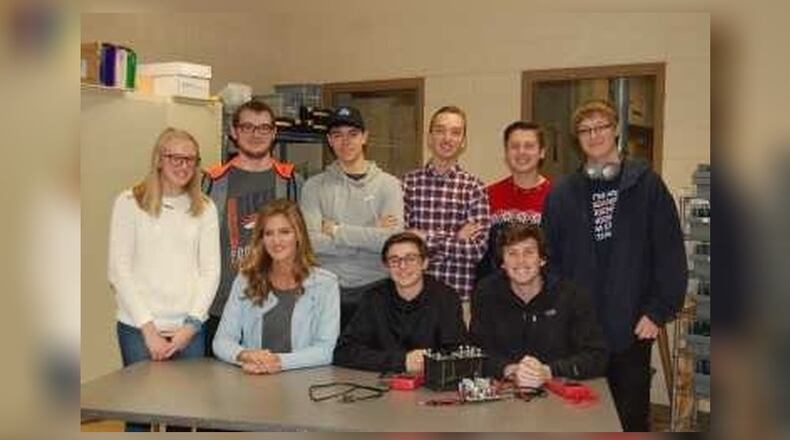The local teens’ project, dubbed “Operation Thaw,” required the students to solve a community problem using STEM concepts. Their idea is to defrost the windshield of a car without starting it and contributing to polluting the environment.
Instead, the car’s heater will be started remotely using a phone app they have developed.
They submitted a working prototype and video to Samsung on Feb. 15 after working with an assigned Samsung mentor and finished in first place in Ohio, said Fairfield AP Physics teacher in Kurt Etter.
The class won technological equipment for placing in the top five in the state. The students are now in line to receive additional technology valued at up to $50,000 and a trip to Washington D.C., depending on how far the group advances.
“Currently we are the state winner. The next step is 10 schools are picked to make pitch event for ideas in New York City at Samsung’s headquarters,” Etter said.
“These students are interested in STEM careers and we excited to apply classroom knowledge to the real world,” he said.
“The school will receive technology for the classroom of at least $20,000, and $100,000 if we win the contest. Most of the team are seniors, so they will benefit more from the experience and be able to put the experience on their resume,” said Etter. “Samsung does offer internships to college students, and some of the internships are reserved for contest alums, so potential for them later in life.”
Stories popular this week
- » West Chester restaurant evicted, closes after three-plus years in business
- » Naked man captured by police after fleeing hospital, his second foot chase of the day
- » Middletown man who inspired for years after 2002 near-drowning dies at 19
- » What the stars of ‘Hamilton’ did when they visited downtown Hamilton
Fairfield senior and team leader Katarina Putnick said the experience for the 15 members of the team is already valuable regardless of how they eventually finish in the national competition.
“This journey has taught us what it means to think like an engineer,” Putnick said.
“It has challenged us to not only solve our problems along the way, but to find the most effective and efficient solution overall. Not only have we been pushed academically, but we have learned how to work productively in a group outside of the classroom. This experience has helped us develop knowledge and skills that make us competitive applicants for scholarships, internships, and job positions.”
About the Author
